More articles Friday 28 August 2020 8:00pm
Kit de Waal: “They should be afraid of the working class”
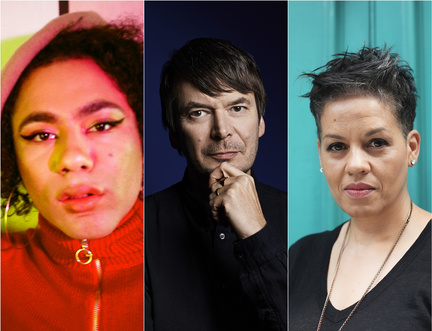
In 2018, The Panic! Arts report found that working-class people are dramatically under-represented in the arts, and it is – as many have long-known – a culture dominated by the white middle class. Today, a formidable line-up of artists comprised of filmmaker Paul Sng, actor Valerie Edmond, writer Ian Rankin, performer Travis Alabanza and writer Kit de Waal, took to the digital stage of the Book Festival for an impassioned conversation about the value of working class voices in the arts, and how to tackle the ongoing challenges posed by institutions run exclusively by those in other social classes.
Scottish actor Valerie Edmond began the conversation with a stark note about the relevance of discussions about class during the Covid-19 era, noting that: “At the other side of this [pandemic] there’s going to be winners and losers, and it’s my feeling that the people who are from the working classes will not be the winners.”
Award-winning author of My Name is Leon Kit de Waal agreed, adding that the plight for the working classes would continue until a strong collective voice was able to rise up and challenge the status quo: “What a force we would be for change if we could all get together, speak with one voice, and overturn some of the terrible injustices that are going on. I’m desperately sorry that the government today aren’t more afraid of the working class – they should be afraid of the working class, but until we gather ourselves together people will continue to abuse the working classes as they always have.” Adding that the biggest challenge to this collective voice is the manipulative campaigning conducted by our own government, “They’ve been able to manipulate the fears and the very precarious nature of working class lives which are to do with money and jobs and housing… they’ve been very cleverly able to exploit that vulnerability that we have as people that do work for a living, and the people that are the most disempowered in society.”
Documentary filmmaker Paul Sng concurred, adding that ‘scapegoating’ had become a worrying tactic used by right wing commentators to divide the working class and redirect anger towards those even less fortunate, in particular migrants. “It’s not people in dinghies that are the enemy of the working class, it’s people in private jets, helicopters and limousines.’ He added “We need to rise up together, we need to make sure that levels of ignorance or a lack of education don’t exist. That we challenge our friends, we challenge our family… we’ve all got to combat this prejudice that exists.”
Performer, writer, theatre maker and all-round trailblazer Travis Alabanza, argued that the recent A-Level results fiasco was another example of class-based oppression. “As working class people we always have to – when we’re growing up – from the minute of education, continue to dispel assumptions of us. And what’s happened right now is that the government’s not given young people the power to dispel any assumptions.”
Bestselling crime writer Ian Rankin spoke about the culture shock of moving from working-class Fife to study at the University of Edinburgh: ‘It wasn’t until I came to Edinburgh – to University – that I learnt there were these hierarchies… There were a lot of students at the university that I never saw until the exams came along, because they never went to classes, they just went to parties, or they went skiing, or they were down in London putting on fashion shows. Then they would turn up, do their exams, get a 2:1 and go away into the world, where their parents would make sure they got a decent job.”
But de Waal went on to argue that the working classes shouldn’t just focus on their negative experiences, “There are so many things about working class that are to be celebrated and held on to. And the sense of solidarity and community, and the fact that communities very often will share, the things that you learn, the resilience you learn (sometimes the resilience you shouldn’t have to learn…)… I always try and stress that there’s a value in that.” Adding wryly that she believes the dreaded second album of rock bands who originally came from the streets is never as good as the first, “because now they’ve got some money.”
Alabanza went further and added that being working class and being poor inspires great art and great talent – art that has infiltrated into the middle-class mainstream. “They [the middle-classes] are using words that come from working class black and brown culture, and for me that helps combat the shame – when I see that they can’t really exist in culture without us.”
Despite Alabanza’s optimism, the challenges for working class artists trying to make it are numerous. Rankin reflected on how high-living costs in London – the location for so many creative jobs – exacerbate the rich-poor divide: “Who can afford to live in London, and work in careers and creative industries, especially publishing? The salaries are so low, how can you afford rent? How can you afford to eat? Well you can’t, unless the bank of mum and dad is coming to your aid. And so you tend to get a very un-level playing field – you’re getting a certain type of person that’s moving into these industries at that level and these end up being the decision makers. These people end up being the editors, the publishers, other people in TV, in film, in theatre, these are the people that decide what people get to see and get to read, and they’re all coming from a very shallow pool – and it wasn’t my bloody pool, and that still annoys me.”
Again Alabanza asserted that this exclusion from the mainstream has actually driven art and artists to be more radical and creative in their work. “So many of us create our own work or our own things because the doors weren’t letting us in, so we have to, we have to be inventive… working class people are hustlers…. I’m loving the fact that I’m seeing so many people my age, and younger, starting to create their own space, their own media platforms, their own publishing houses, their own things, because they’ve realised that they can set the tone of what is universal, they can set the tone of what is the audience, they can decide these things.”
When asked what they would most like people to take away and remember from these troubling times, de Waal asserted that she hoped the struggles and sacrifice ‘the people at the bottom’ have made in order to help others during the pandemic would not be forgotten; Rankin hoped the community spirit would stay alive; Alabanza wanted us to reflect on the failures of a government that “has continuously failed poor people, continuously failed black people, continuously failed so many of the most marginalised during this pandemic.” and Sng – reflecting on the roles tv and film have played in helping people cope with lockdown – wanted to see “initiatives from the [film and television] studios… to actually start investing much more at a grassroots level… to go out into communities… to go into working class areas… and find this talent and nurture it from a very early stage.”
--
You can watch this event again in full on our website: https://www.edbookfest.co.uk/the-festival/whats-on/who-s-afraid-of-the-working-class/player
Look, Listen & Read

New Rebus TV series in development, written by Black Watch playwright Gregory Burke
Thu 16 August 2018


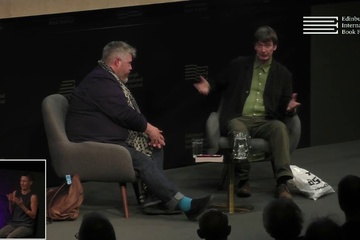
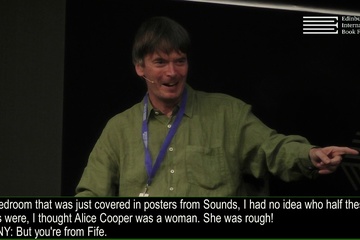
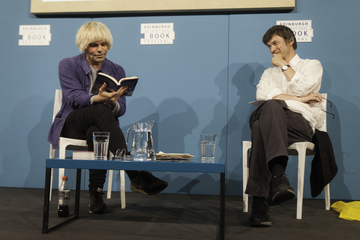

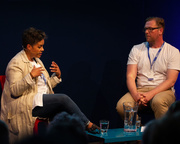

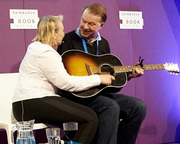
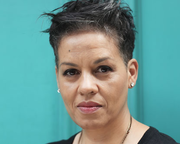
 Major new partnership with Celtic Connections
Major new partnership with Celtic Connections 

